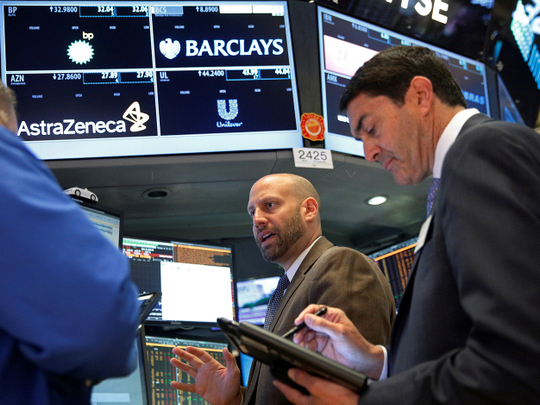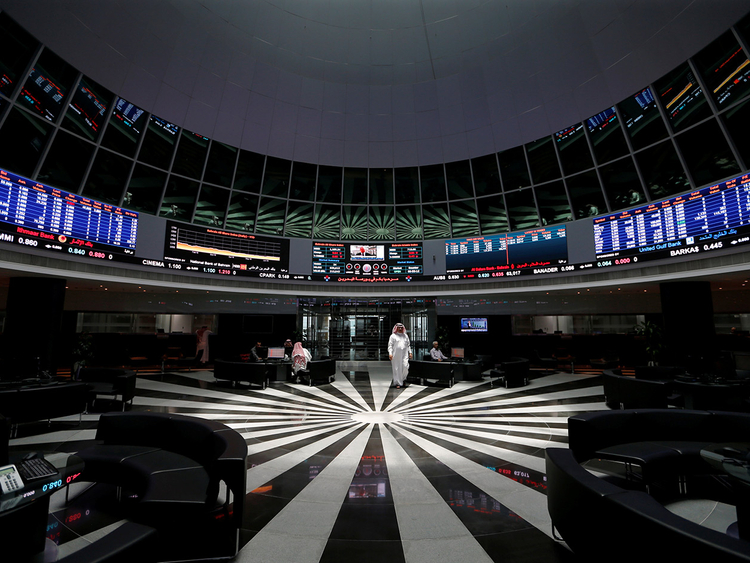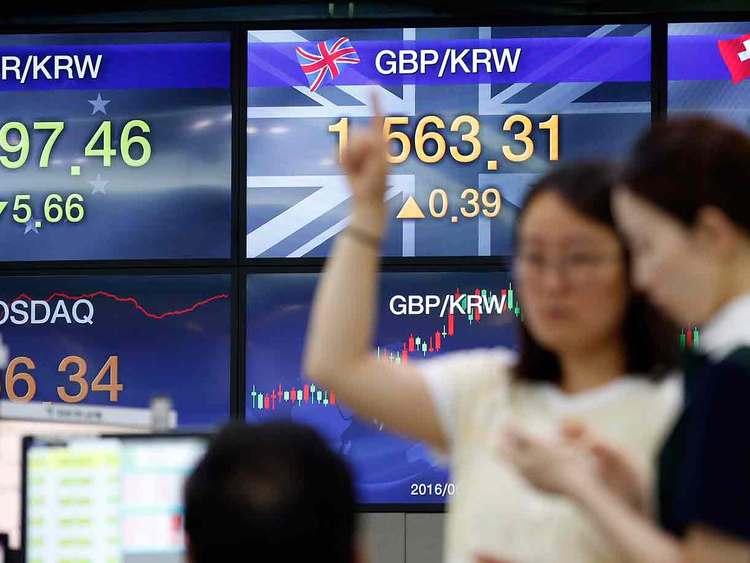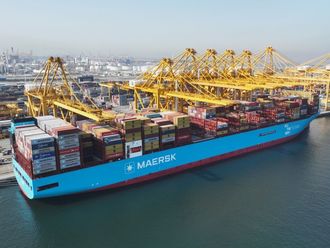
Abu Dhabi: European equity indices surged on Tuesday in early trade, rebounding from the losses seen in the past two trade sessions after Britain’s vote to leave the European Union.
London’s FTSE 100 index jumped 2.22 per cent in the first hour of trade (or 133 points) to 6,115.29, while the FTSE 250 index, which is more UK-centric, rose 2.74 per cent (or 410 points).
Similarly, Germany’s DAX was up 2.24 per cent shortly after opening, as France’s CAC 40 advanced 2.5 per cent, and Italy’s benchmark rose 4.39 per cent.
Analysts attributed the rebound to bargain hunters who are now finding relatively attractive prices after shares tanked in the double digits throughout Friday and Monday.
Fundamentally, the rebound is unjustifiable, though, as the UK still faces plenty of uncertainty both on the political and economic fronts.
US equities
In the US, equity futures climbed, signalling that the S&P 500 index may rise for the first time since Friday’s Brexit vote. The index ended trade on Monday with a 1.81 per cent decline.
Meanwhile, in Asia, equity markets were nearly flat as investors speculated that central banks may move to ease market turmoil.
More than $974 billion have been wiped from S&P 500 stock values in the past two days alone – the third most in history – Bloomberg said, citing data compiled by S&P Dow Jones indices.
Shinzo Abe, Japan’s Prime Minister, said Japan will be monitoring markets closely. Analysts speculating that that would mean looser policies from central banks not just in Japan but in other countries, too.
Almost an hour before trade closed, the Hang Seng index was down 0.51 per cent, as Japans’ Topix slid 0.09 per cent, and the Shanghai Composite closed nearly 0.6 per cent up.
In the UAE, the Dubai Financial Market (DFM) index was moving in narrow ranges of nearly 20 points in early trade, rising 0.44 per cent to 3,300 shortly after noon (UAE time). Abu Dhabi’s benchmark was down 0.35 per cent to 4,418.
This comes after a volatile session on Sunday when the DFM index fell as much as 4.7 per cent only a few minutes after trade began, bouncing back slightly on Monday to end 0.8 per cent higher.
(With inputs from Bloomberg)
Earlier report
In Hong Kong, meanwhile, Asian stock markets resumed their losses Tuesday morning, extending another sharp sell-off in Europe and New York that was fuelled by Britain's shock decision to tear itself away from the EU.
Regional markets enjoyed a surprise bounce Monday after Friday's mauling, but uncertainty over the vote — which many fear could precipitate the end of the United Kingdom and even the European Union — wiped out the gains.
A lack of haste among Britain's leadership is adding to the sense of drift in the country, with Prime Minister David Cameron saying he will stand down in the autumn and hand the responsibility for extricating the country from the EU to his - as yet unknown - successor.
However, the pound managed to hold up after plumbing new three-decade lows in New York, although there was a warning it could go even lower against the dollar as the crisis drags on.
Britain's top-notch Triple-A rating was cut by two agencies Monday.
"Equity markets hate this sort of uncertainty," Grant Williamson, an investment adviser at New Zealand brokerage Hamilton Hindin Greene, told Bloomberg News.
"This is unchartered territory as to how it all plays out with the exit negotiations. It's going to cause disruption to world trade and it will take quite some time for the UK to realign their economy."
In early trade, Tokyo was down two per cent, Sydney shed 1.3 per cent and Seoul was off 0.5 per cent while Wellington slipped 0.3 per cent.
The retreat tracked similar losses in New York, where the three main indexes lost between 1.5 and 2.4 per cent.
A painful $974.2 billion was scythed off the S&P 500 in two days, the third worst back-to-back stretch in history, according to S&P Dow Jones Indices.
Asia damage 'limited'
Earlier Frankfurt and Paris lost three per cent each and London gave up 2.6 per cent.
In Asian forex trade the pound bought $1.3226, virtually unmoved from late in New York but well up from the $1.3121 hit earlier Monday, which was its lowest level since September 1985.
But Japanese banking giant Nomura warned it could fall to $1.25 owing to worries about Britain's economic future.
Standard & Poor's and Fitch each cut the country's top sovereign credit rating, making it more expensive to borrow cash in international markets.
As well as the feared blow to the financial sector, S&P warned there were risks to Britain's "constitutional and economic integrity" due to the possibility of a future referendum on Scottish independence.
Despite the losses in Asia, S&P Global Ratings credit analyst Terry Chan said he saw limited long-term damage to the region.
"Brexit's market impact is likely to be significant in the near term, particularly in terms of stock market and currency volatility," he said.
"The medium-term impact on Asia-Pacific markets, however, is likely to be limited as investors make decisions based more on economic and financial fundamentals rather than just sentiment.
"If market volatility were to spike and prolong, we believe Asia-Pacific regulators are likely to take action, including extending short-term liquidity."
Key figures around 0100 GMT
Tokyo - Nikkei 225: DOWN 2.0 per cent at 15,004.72
Hong Kong - Hang Seng: Yet to open
Shanghai - Composite: Yet to open
Pound/dollar: DOWN at $1.3226 from $1.3228 Monday
Euro/dollar: DOWN at $1.1020 from $1.1022
Dollar/yen: DOWN at 101.81 yen from 101.99 yen
New York - DOW: DOWN 1.5 per cent at 17,140.24 (close)
London - FTSE 100: DOWN 2.6 per cent at 5,982.20 (close)














